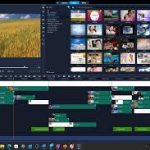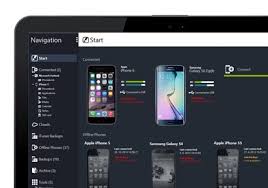- Author Sanjib Kumar Das
- Published August 29, 2022
- Word count 805
View author’s other articles
A well-designed website should serve its purpose by communicating its unique message, while also captivating the viewer.
A well-designed website can create trust and help users to make a decision. A great user experience starts with making sure that your site’s design is optimized for user-friendliness (form and appearance) and how simple to navigate (functionality).
Below are some suggestions to guide you when looking at your next web-based venture.
- WEBSITE PURPOSES
Your website must be able to meet the requirements of your users. A clear and simple message on every page will allow the user to feel comfortable with what you provide. What’s the objective of your site? Are you providing useful information such as a ‘How-to guide or a ‘How to guide’? Are you an entertainment site such as sports coverage or are you selling products to users? There are many different functions that websites could serve but there are some fundamental purposes that are common to all websites.
a. Describing Expertise
b. Building Your Reputation
c. Generating Leads
d. Sales and After Care
- SIMPLICITY
Simple is the way to think about user experience and accessibility of your site. Here are some ways to simplify your design.
Color
The power of colour is to convey messages and trigger emotions. Picking a palette of colors that matches your brand’s image can allow you to influence the way your customers behave toward your company. Make sure that the color selection is limited to no more than five colors. Colors that complement each other work well.
Type
Typography plays a crucial role to play in the design of your website. Fonts must be legible and should be used in a minimum of three different fonts for the website.
Imagery
Imagery refers to all aspects of visuals employed in communications. This includes still images, illustrations, videos and other forms of graphic design. The imagery must be evocative and convey the essence of the company and serve as a reflection of their image. A majority of the information we see on websites is visual. As the first impression, it’s important that images of high quality are used to create an impression of professionalism and trustworthiness in the minds of visitors.
- NAVIGATION
Navigation is the system of wayfinding employed on websites that allow visitors to interact and locate what they’re searching for. Navigation on websites is crucial in retaining users. If the navigation of your website is unclear, visitors may abandon the site and look for the information they require elsewhere. Making navigation easy, simple and consistent across every page is essential.
- F-SHAPED PATTERN READING
The F-pattern based on the design is by far the most commonly used way that people read text on websites. Eye tracking studies have shown that the majority of what we are able to see is located on the left and top sections of the display. The F shape layout is a resemblance to our normal pattern of reading from the West (left to right, and from top to bottom). A well-designed web page will follow the natural patterns of a person looking at the site.
- Visual HIERARCHY
The visual hierarchy arranges objects according to their importance. It is accomplished by the size, color contrast, typography whitespace, texture or design. One of the primary roles that visual hierarchy serves is to create the focal point. This lets the viewer know where the most crucial information is.
- CONTENT
A successful website is one that has excellent design and content. With compelling language, great content can entice and entice visitors to convert visitors into customers.
- GRID BASED LAYOUT
Grids can help you structure your design and help keep your content in order. The grid assists in aligning elements of the page, and keeps it neat. The grid layout organizes content in a neat, rigid grid with sections, and columns which are aligned, seem balanced and create the order of the page, which results in a visually pleasing site.
- TIME TO DOWNLOAD TIME
In the meantime, waiting for a website to load can cause visitors to leave. The majority of users are looking for websites to load in two seconds or less. They could leave a website that doesn’t load within 3 minutes. Optimizing the size of your images will assist in speeding up the loading of your website.
- MOBILE FRIENDLY
Many people are using their smartphones and other devices to browse the internet. It is essential to think about creating your site with an adaptive layout so that your site can adapt to various screens.
We will bring life to your site and tell you a tale are a “family” team of innovative professionals in the field of design, marketing and technology.
Results-driven web design services
Be sure that your new site is designed to grow – increasing the number of visitors to your site and boosting conversions










